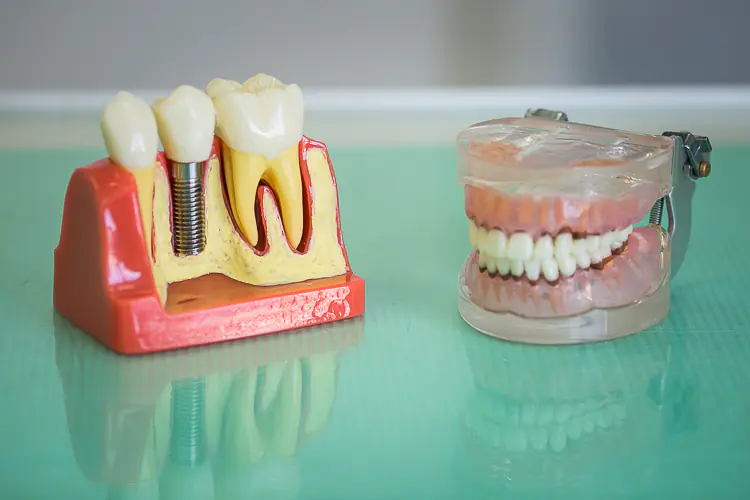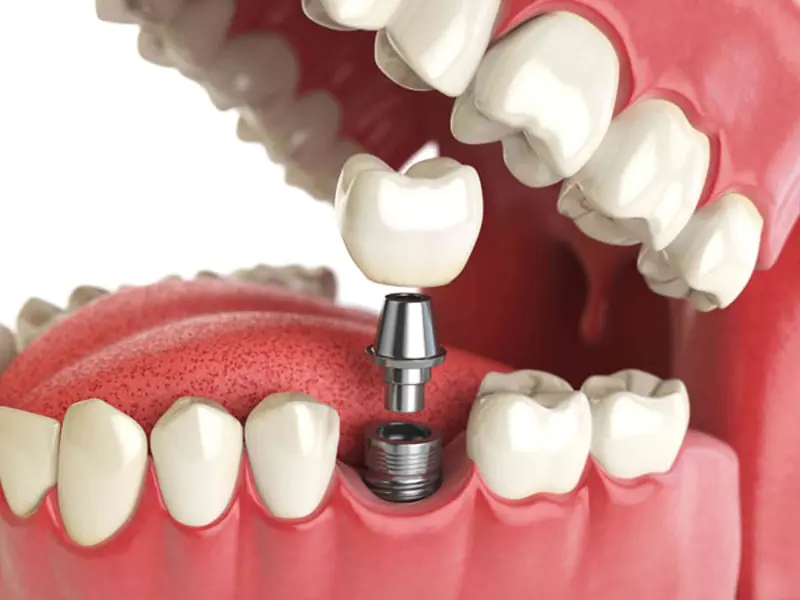Dental implantation is one of the most popular methods of dental restoration. It allows you to restore the lost function and aesthetic appearance of teeth, as well as maintain oral health. During the implantation process, special materials and technologies are used that ensure high reliability and durability of the structure.

Indications and contraindications for dental implantation
Indications for dental implants may include:
- Loss of one or more teeth due to injury, tooth decay, or other oral diseases.
- The need to replace removable dentures, which can cause discomfort and limit the functionality of the oral cavity.
- The need to restore the aesthetic appearance of a smile.
Contraindications to dental implants may include:
- Insufficient amount of bone tissue in the implantation area. — Acute or chronic oral disease such as gingivitis, periodontitis or caries.
- Systemic diseases such as diabetes or cardiovascular disease that may affect the healing process after implantation.
- Immunodeficiency conditions, which may increase the risk of infections after implantation.
- Pregnancy or lactation, as the implantation procedure may be dangerous for the child or infant.
A preliminary consultation with a dentist will help determine individual indications and contraindications for dental implantation.
Implantation stages
which can be found by calling +7 499 283 0684 is carried out in several stages. The first step is preparation for implantation. At this stage, the doctor examines and consults the patient to determine his health condition and select the optimal implantation option.
Next comes the stage of surgical implantation. At this stage, the doctor installs the implant into the bone tissue of the jaw or upper jaw. An implant is a special metal pin that is used to secure a tooth.
After installing the implant, it is necessary to give it time to integrate with the bone tissue. This process usually takes from 3 to 6 months.

This is followed by the stage of prosthetics. At this stage, the doctor installs a special abutment on the implant - this is an element that connects the implant and the dental crown. The doctor then places the dental crown on the abutment.
Depending on the condition of the teeth and bone tissue, dental implantation can be carried out in different ways. For example, if the bone tissue is not sufficiently developed, additional procedures may be required to strengthen it.
Dental implantation can also be performed using various materials. For example, metals, ceramics or polymer materials can be used to make an implant.
Dental implantation is a procedure that requires certain skills and knowledge. Therefore, before implantation, you must consult an experienced dentist.
In general, dental implantation is an effective method of dental restoration that allows you to maintain the health and aesthetic appearance of your teeth. However, before implantation, you must contact an experienced dentist and undergo regular examinations and consultations.



